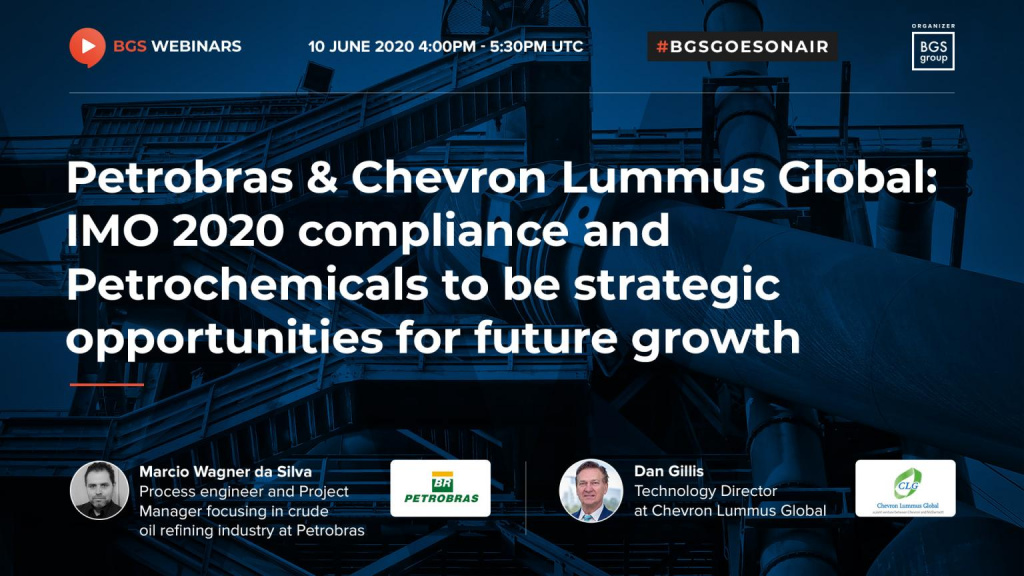Blog
Crude-to-chemicals & Future of the European Downstream Market

The constant participants of PRC Europe Congress Marcio Wagner da Silva (Process engineer and Project Manager focusing in crude oil refining industry at Petrobras) and Dan Gillis (Technology Director at Chevron Lummus Global) discussed the strategic role of petrochemicals for the future Downstream industry development at BGS Webinar. Here we gathered the highlights of the webinar for you.
Is there a future for petrochemicals in Europe?
There are tremendous economic incentives for the downstream companies to shift from road transportation fuels to petrochemicals. We see growth in the petrochemical market, and we are still to see it in the emerging markets.
In Europe, companies are not that much focused on petrochemicals production but on increasing efficiency.
What is the current role of crude-to-chemicals production?
Crude-to-chemicals is a very interesting opportunity for us, and we already have technologies for that. In some regions you do not need diesel or naphtha, so you just feed them to your crackers to get valuable petrochemicals. Crude-to-chemicals is capital intensive but the yields and the revenues are really tremendous.
How does digitalization impacts petrochemical production?
When you go for more advanced monitoring, you get opportunities for more efficient production. If you want for example maximize your propylene yields, digital technologies are something that can help you with advanced observation and control of your FCC. Petrochemical production is expensive, and to have some extra 0,5% of the product adds tremendous value.
How do you foresee the dynamics and competitiveness of the refining industry, and what are the key factors to be considered?
The price of high-sulfur fuel is going to be low compared to diesel and low-sulfur. We expect to see major investments in residue upgrading projects for the next 20-30 years.
Consider current refining infrastructure - you don’t want to develop the new infrastructure from scratch. And examine the market, will you be able to sell your products? Will you be able to access the end-user? It is important because you can have some internal country limitations that can force you to do something else.
ADDITIONAL OPTIONS FOR YOU:
- use the buttons at website's footer and subscribe to BGS Group's social media pages to get the updates on new webinars and ask your questions to the speakers
- find out more about Petrochemical and Refining Congress: Europe at prceurope.com
- request marketing materials here
- share the article in social networks using the buttons below and our tag #PRCEurope2020